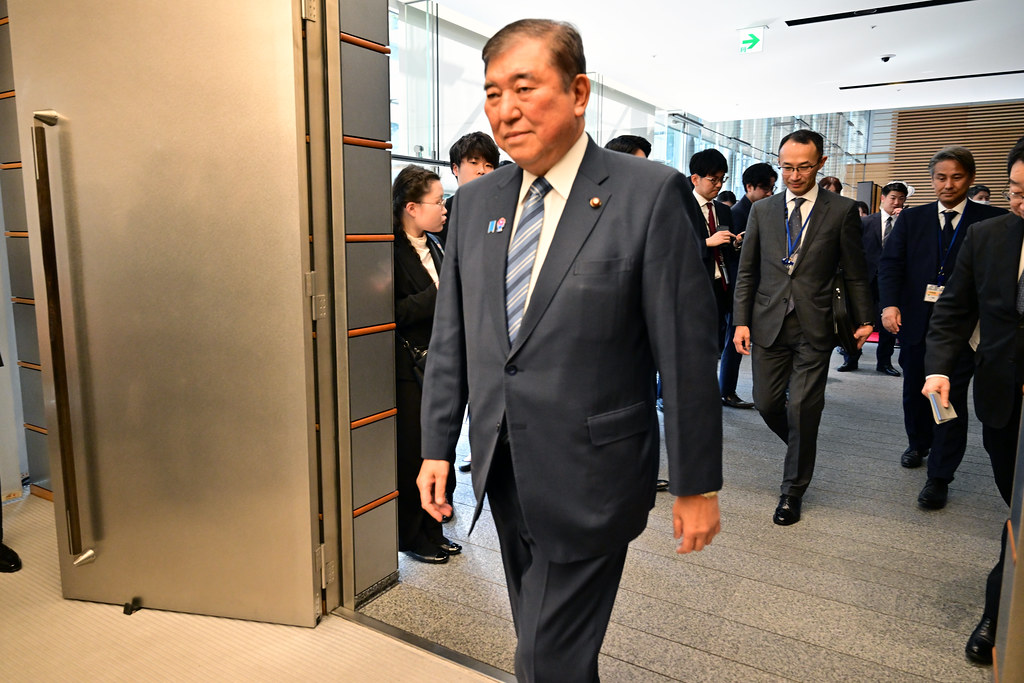
Japanese Premier Shigeru Ishiba pledged to remain in office on Monday despite his ruling coalition suffering significant losses in the upper house elections. The disappointing results have led some members within his own party to question his leadership, while the opposition considers a no-confidence motion.
At a press conference, Ishiba emphasized his commitment to addressing urgent issues such as tariff negotiations with the United States and rising consumer prices weighing on Japan’s economy — the world’s fourth largest.
“I will stay in office and do everything in my power to chart a path toward resolving these challenges,” Ishiba said, adding that he plans to speak directly with U.S. President Donald Trump soon to achieve concrete outcomes.
Despite his assurances, analysts predict Ishiba’s position may be unstable. After losing control of the more powerful lower house in last year’s elections, Sunday’s results reflect further erosion of his support, with opposition parties gaining ground by promising tax cuts and stricter immigration controls.
Norihiro Yamaguchi, lead Japan economist at Oxford Economics, noted, “The political situation has become fluid and could lead to a leadership change or the reshuffling of the coalition in coming months.”
Investors worry that Ishiba’s administration may increasingly accommodate opposition demands for tax relief and welfare spending, which could worsen Japan’s already massive debt.
Ishiba’s Response and Economic Market Reactions
The 68-year-old premier said he has no plans to expand his coalition but intends to work with opposition parties to tackle voter concerns, especially on inflation. However, he cautioned that tax changes will not provide immediate relief for households.
Although Japanese markets were closed for a holiday on Monday, the yen strengthened slightly, and Nikkei futures saw modest gains, indicating the election results were already factored into the market. Japanese government bond yields had previously risen sharply ahead of the vote amid concerns about fiscal restraint.
Ishiba’s slow progress in averting upcoming tariffs from the United States, set to take effect on August 1, has further frustrated voters. Hideaki Matsuda, a company manager in Tokyo, said, “If the ruling party had resolved even one of these issues, approval ratings would have improved. But it feels like the U.S. continues to push us around.”
Japan’s chief tariff negotiator, Ryosei Akazawa, departed for trade talks in Washington on Monday, marking his eighth visit in three months.
Rise of Far-Right Politics
In the elections, Ishiba’s Liberal Democratic Party (LDP) and coalition partner Komeito won 47 seats—falling short of the 50 needed for a majority in the 248-seat upper house.
The main opposition, the Constitutional Democratic Party of Japan (CDPJ), gained 22 seats, finishing second. CDPJ leader Yoshihiko Noda announced plans to consider a no-confidence vote against Ishiba’s government, reflecting voters’ diminished trust.
Some senior LDP members, including former Prime Minister Taro Aso, have reportedly voiced doubts about Ishiba’s continued leadership.
Meanwhile, the far-right Sanseito party made significant gains, winning 14 seats. Known for conspiracy theories and nationalist rhetoric, Sanseito’s “Japanese First” campaign warns of a “silent invasion” of foreigners, signaling the emergence of populist politics in Japan.
Sanseito leader Sohei Kamiya has cited Germany’s AfD and the UK’s Reform Party as inspirations for his movement.
What The Author Thinks
Japan stands at a crossroads as traditional political power wanes and far-right populism gains traction. Ishiba’s determination to remain in office despite setbacks reveals a reluctance to embrace necessary change. The rise of parties like Sanseito reflects growing nationalist sentiment and voter frustration with established politics. Moving forward, Japan must balance economic challenges with social cohesion to avoid deeper political instability.
Featured image credit: IAEA Imagebank via Flickr
For more stories like it, click the +Follow button at the top of this page to follow us.
